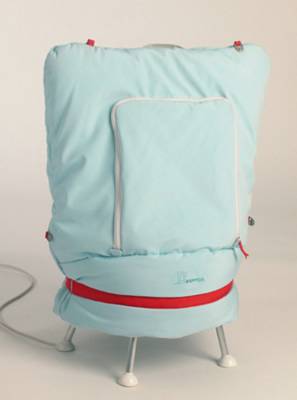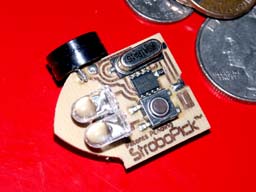The Iraqi Ballot, Translated
I had the opportunity to participate in the long-awaited Iraqi elections this weekend. Contrary to popular belief, this was not the first time my opinion has mattered to the Iraqi state. It was actually the third. Saddam Hussein had asked us Iraqis in both 1995 and 2002 if we wanted him to be our leader. The question sounded rather silly, considering the amount of Iraqi, Iranian, and Kuwaiti blood on his hands. Nevertheless, in both referenda, Saddam's approval ratings exceeded 99 percent. That statistic could not have been accurate, could it? Did the Iraqis really want even more years of crushing tyranny, war with neighbors, and ethnic cleansing?
In retrospect, I could come up with dozens of theories on the shocking outcome of the two referenda. Maybe only Ba'athists participated in the polls. Maybe people were too afraid to say they didn't want Saddam. Maybe the chads of those who did cast a "no" vote were hanging. In any case, I shouldn't waste so much time analyzing the past. The bottom line is that there is no such thing as democracy under dictatorship. My time today is better spent taking advantage of democracy under foreign occupation.
I hesitated before voting for reasons familiar to anyone who follows the news. But then I thought of the disappointment on the faces of my American guests if I did not accept the democracy they brought me. I didn't want their feelings to be hurt. I didn't want them to think that the residents of the Cradle of Civilization are not civilized. So I mustered the courage to go to the voting site nearest my house in Baghdad.
Initially, I thought I was at the American embassy because there were so many American soldiers standing outside. I checked my registration slip. I did in fact have the correct address. So I took a deep breath and walked in. I was pleasantly surprised to discover that Iraqi authorities had requested American troops' presence because they needed help making Iraqi tea for the voters. Their desire was to make the democratic process feel as close to home as possible.
A young soldier from Texas served me a cup of Iraqi hospitality. Then I nervously proceeded toward the voting booth. My heart was racing, and tears flooded my eyes as I thought of the price that was paid to make this moment happen. On a personal level, my niece had suffered severe burns on her arms and legs when bombs shook Baghdad in March 2003. My backyard was converted into a parking spot for an American tank. More broadly, over a hundred thousand of my countrymen had to be killed, and many more had to be wounded and disabled. Many American families had to mourn the loss of their loved ones in the military. The environment was sentenced to suffer for the next several centuries. Politicians in the White House and Parliament had gone out of their way just to ensure that my cup of tea had the right amount of sugar while I expressed whom I thought should hold the magic wand to make all my agony go away.
Read the rest. You won't be disappointed.









